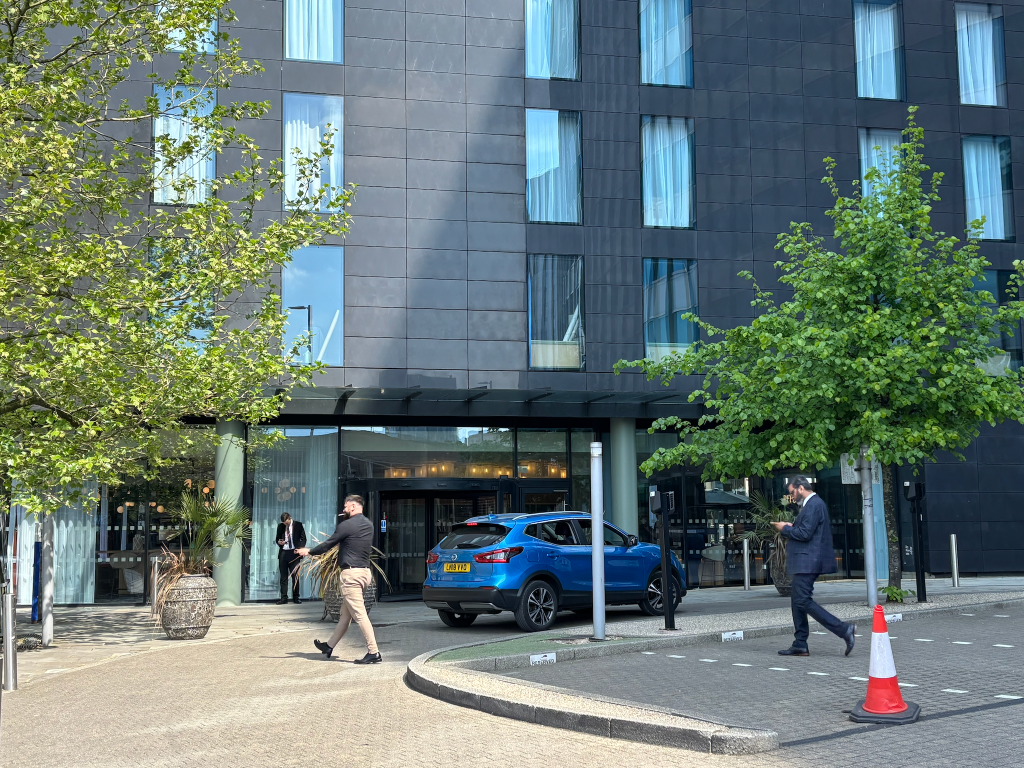Physical Address
304 North Cardinal St.
Dorchester Center, MA 02124
Physical Address
304 North Cardinal St.
Dorchester Center, MA 02124

Radisson has unveiled two new hotels it says are verified as net zero – one in Manchester, UK, and the other in Oslo, Norway.
In Manchester, the hotel’s water and central heating systems are powered by heat pumps that do not rely on fossil fuels.
In Oslo, the property uses a combination of renewable electricity and district heating provided by the city, one of the few in Europe where district heating is entirely powered by renewable sources.
Radisson said the hotels were assessed using the Net Zero Methodology for Hotels and are designed to minimize emissions across all aspects of their operations, from restaurant menus to supplier partnerships.

Each has reduced its carbon footprint by rethinking food sourcing and aligning with vendors committed to cutting greenhouse gas emissions.
Both properties feature the “net zero” designation in their names:
• Radisson Hotel Manchester City Centre, A Verified Net Zero Hotel
• Radisson Red Oslo City Centre, A Verified Net Zero Hotel.
While Radisson sees strong potential in scaling this model, the company says financial constraints are holding back further expansion.
“We actually have more net-zero projects ready to go, but financing is the issue,” said Inge Huijbrechts, Radisson’s Chief Sustainability and Security Officer. “A lot of our growth is in emerging markets, and access to capital for decarbonization projects just isn’t there.”
Radisson said it considered the environmental impact of everyday supplies and services, such as cleaning products, bathroom amenities, and laundry operations.
Restaurant menus were redesigned to reduce emissions, and the company worked closely with suppliers to source lower-impact ingredients and materials.

Among the guest room options at the Manchester hotel are Net Zero Standard Double or Net Zero King Room. Food menus now use a traffic light-style label, rating meals from A (lowest emissions) to E (highest).
Plant-based dishes make up most of the A-rated options. A beef steak, by contrast, gets an E.
The company says food makes up around 59% of its scope 3 emissions, largely due to meat production and food transport.
Chefs now weigh waste and convert it into carbon emissions data to better understand and manage the footprint of each dish.
Inside the rooms, guests won’t find paper laundry slips or single-use amenities. Rooms are plastic-free except for the larger-format toiletry containers, which are recycled through a specialist partner.

Huijbrechts said Radisson invested into the net-zero conversions to help prove the business case. The electrification of the Manchester project alone cost over a million euros.
“We wanted to show investors it can be done and that there’s revenue to be made, especially from corporate clients who now track emissions from staff travel,” she said.

A recent report from the World Business Council for Sustainable Development backs this up.
It found that while 91% of business leaders see net zero as an investment opportunity, only 1% think the transition is on track.
Many called for stronger government backing to unlock funding.
Radisson, like all major hotel groups operating in Europe, faces a 2050 deadline to bring its buildings to net-zero under EU rules.
“We’ve got a lot of buildings to convert and not that much time,” said Huijbrechts.
Radisson admits there are still areas it can’t fully decarbonize, such as laundry. The supplier used at the Manchester site runs its operations on gas.
Huijbrechts said the company offsets what it can’t eliminate using nature-based carbon credits, which focus on carbon removal rather than avoidance.
An example of removal projects includes things like tree planting or soil regeneration, not just preventing emissions, such as by protecting a forest from being cut down.
Radisson said it reduced the Manchester hotel’s total carbon footprint by 60% in the conversion. The remaining 40% has been offset with carbon credits.
“We reduce where we can and remove what we can’t,” Huijbrechts said. “We expect to see an even bigger total carbon footprint reduction over time as the full impact from the technical equipment investment and of the operational reduction measures such as low-carbon menus and waste minimization, come into effect.”
Skift’s in-depth reporting on climate issues is made possible through the financial support of Intrepid Travel. This backing allows Skift to bring you high-quality journalism on one of the most important topics facing our planet today. Intrepid is not involved in any decisions made by Skift’s editorial team.